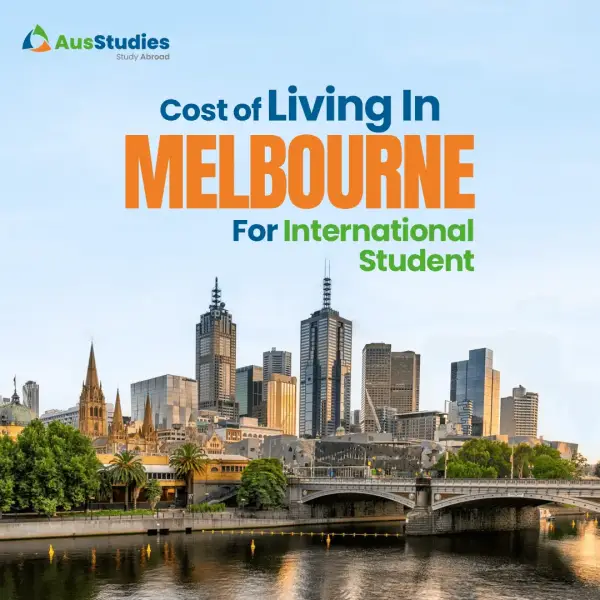Planning to study abroad during COVID 19 pandemic

Millions of students worldwide have been adversely affected by the COVID-19 pandemic, including those who choose to study abroad. While several people are reconsidering their plans to study overseas, a substantial number of Nepalese students say that the outbreak did not affect their plans.The crisis has reshaped the way international universities deliver higher education on multiple fronts, with classes shifting online for at least the rest of the year. Students are torn between how they can focus on studying abroad in the face of the pandemic, from the availability of work opportunities and having visa applications approved to losing out on-campus experience and choosing whether to defer admissions or stick to the plan.This guide will outline the impacts of COVID-19 on Nepalese students, prep for higher education abroad during the pandemic, the advantages of studying abroad, and more.
What Effect Has COVID-19 Had on Nepalese Students So Far?
Given the current situation, it's understandable that Nepalese students are having trouble articulating the influence of higher education abroad. Thousands of Nepalese students have enrolled in universities around the world as of 2019. Owing to the crisis, global higher education is facing unprecedented challenges, causing students to change their study plans, whether it be at the undergraduate, postgraduate, or research level. The pandemic has impacted more than half of all study abroad applicants on average, and there is no doubt that students' movement has been dramatically affected. For the upcoming academic year, several universities have agreed to cancel all mass lectures, restrict the number of students in classrooms, and introduce online classes.
How do Nepalese students want to study abroad during or after COVID-19?
It is indeed challenging to figure out on how a prospective study abroad student can approach COVID-19's scenarios. Prospective Nepalese students have shown a variety of reactions to the current situation. While almost half of study abroad applicants choose to extend their applications until the next academic year, many others search for study opportunities in a foreign land and hope to travel abroad to study on campus and resume their studies as usual. During these turbulent times, the most frequently asked question is about the availability of funding and scholarships that can ease financial difficulties. Countries like New Zealand and Australia have set aside funds for foreign students and are considering reorganizing their higher education funding.
Let us review how COVID-19 issues can be tackled by study abroad aspirants:
Please stick to the plan: We can't predict when the pandemic will end or when international students will be able to recover from its impact. Students will indeed be wise to proceed with the application process and adhere to their current course of action in light of this. Many foreign universities have extended their application deadlines for international students, allowing them more time to consider if studying abroad is the best choice for them right now. Students would not miss a year by taking classes online at first and only taking courses on campus later.
Explore best universities with COVID-19's response: Almost every university in the world has taken steps to adapt to these extraordinary circumstances. Each university has its unique approach and it can vary from country to country. In response to the novel coronavirus outbreak, several universities in the United Kingdom and Australia have cut their tuition fees.
Focus on Preparation: With students confined to their homes, now is the best time to study for the various international universities' entrance exams. All exam boards have implemented a remote proctoring solution that allows students to take tests such as the GMAT, SAT, ACT, IELTS, and TOEFL from the comfort of their own homes.
Improve Your English-Speaking Ability: One of the most appealing aspects of studying abroad is the chance to immerse yourself in an English-speaking setting where your everyday life and education are conducted entirely in English. So, if you're looking for reasons to study abroad, improving your English-language skills can have a significant impact on your future, even if it's not related to your field of study.
Defer admissions for a year: Deferring admission to a foreign university for a year is one of the studies abroad choices available during COVID-19. Studying online may relieve financial difficulties, but it may also deprive students of the opportunity to experience a completely different culture on an international campus. As a result, deferring admission could be a wise decision for others.
When applying to foreign universities, prospective Nepalese students can look for the following:
-
-Adjustments to the application procedure
-
-Changed Deadlines for applications
-
-Seats in an available university course
-
-Dates of any entrance exams are subject to change.
-
-Changes in the layout of the course
-
-University's right to make unconditional offers is limited.
-
-The university took measures to halt the spread of the coronavirus on campus.
-
-Changes in Requirements for English language tests.
-
-How to defer a submission (if required)
Is Studying Abroad Worth It Despite COVID-19?

According to a recent poll, just 5.4 percent of aspirants want to cancel their study abroad plans because of COVID-19. While many people believe the pandemic has turned a blind eye to their dream of studying abroad, but most foreign universities have seen an increase in international applications. Studying abroad is now one of the best choices for higher education for a variety of reasons:
Career opportunities: It is common knowledge that graduates from international universities have a greater chance of landing a job in any profession. In the worst-case scenario, the global recession will have an immediate impact on employment opportunities and emigration routes, but things will return to normal in the future. Employers are more likely to value study abroad experiences than other types of experiences.
Education's worth: Don't neglect the value that studying in a foreign country will bring to your resume. Studying abroad needs a radically different approach to learning. Students who participate in a study abroad program are introduced to a completely different curriculum from our home country.
More advantageous:Whether through an online or in-person program, graduating from a foreign university appears to change a student's life forever. It involves excellent academic learning and unrivaled personal growth and the possibility of travel shortly. The significant advantages of studying abroad are undoubtedly the opportunity to explore yourself and gain an appreciation of a completely different way of life.
Multiple Course Choices: Not studying in your home country provides you with a wide range of course options. Foreign university programs will broaden your horizons by allowing you to take several classes simultaneously while still providing you with skill-based training.
Global Perspective: Studying abroad allows you to become more familiar with people from various cultures and backgrounds. The ability to think globally can help you deal with modern and more complicated issues in the real world. Your exposure to a completely different culture will allow you to make more open and inclusive decisions.
You are not alone if you are afraid to make study abroad plans because of the COVID-19 outbreak. Although your goals may be on hold for the time being, don't give up on your hopes of studying abroad.
Good luck!!!







